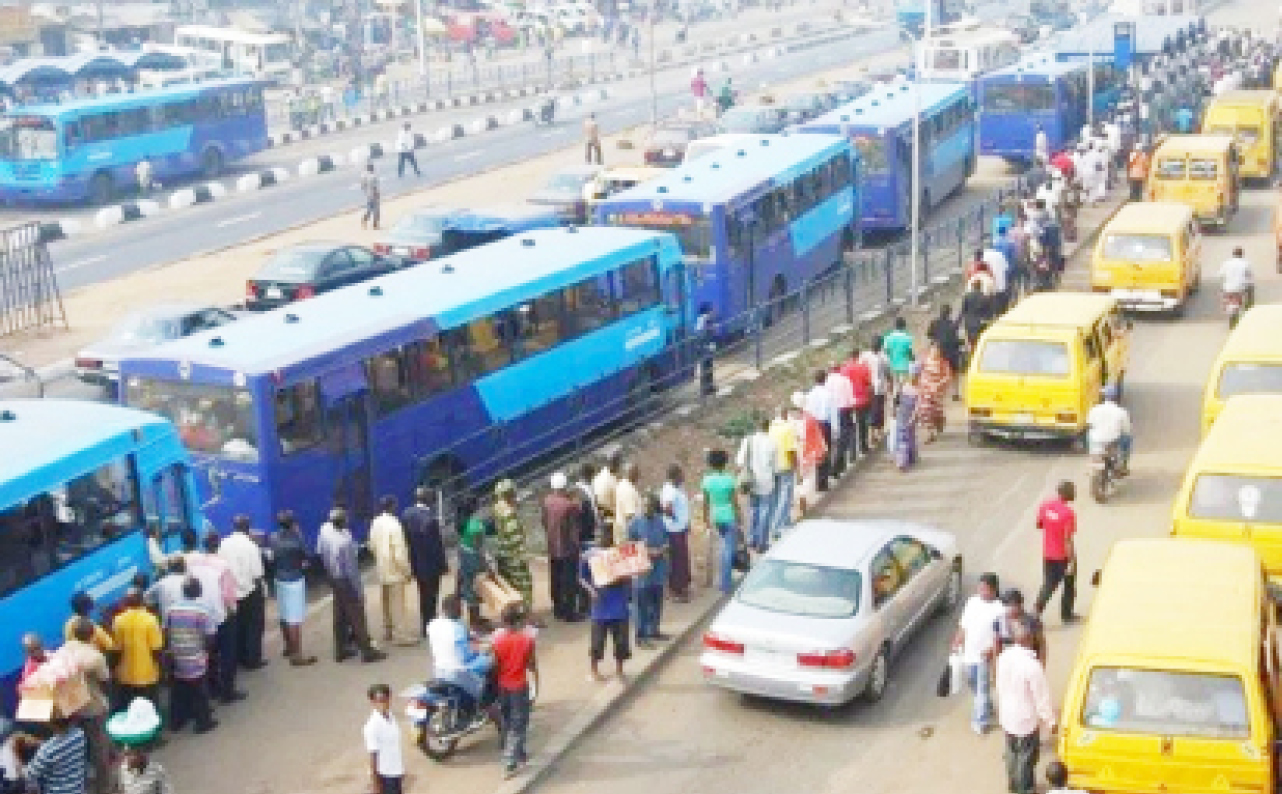Since the announcement of the removal of fuel subsidy by the federal government on May 29, many Nigerians have been adjusting their lifestyles, even as the ‘new normal’ has evidently crashed their purchasing power.
In Bauchi State, the situation created by the recent subsidy removal by the President Bola Ahmed Tinubu administration has paralysed small scale businesses, Daily Trust Saturday can report.
A dealer of grinding machines and accessories in the Central Market in the state, Alhaji Umaru Bello, told Daily Trust Saturday that since the announcement of the removal of subsidy on fuel, his main customers have stopped coming from neighbouring towns and villages.
“Our major customers come from villages and towns across the state, but since the removal of subsidy, the turnout has reduced due to the hike in the pump price of petrol, which caused a rapid increase of transportation fares.
“Their absence has crashed our income and affected not only sales but our means of livelihood, including feeding and other basic needs of our families.
“We are appealing to the government to quickly introduce a mass transport scheme to reduce the cost of transportation, which is affecting the chain of businesses.
“Government should also assist the poor, especially those identified in the social register, to avert hunger and diseases in the country,” Bello said.
Aliyu Ahmed, who sells dry pepper at the Central Market, said business activities had been weakened.
“The hike in the pump price of petrol has caused the increase of prices of commodities and we now witness poor sales, making the market very difficult to run as the little sales are being depleted by high cost of living. My greatest fear is the possibility of consuming our capital.
“I want to appeal to federal and state governments to invest in the provision of subsidised agricultural inputs to farmers under a strict condition to only practicing famers to maximise food production.
“Government should also involve civil society organisations and cooperatives to ensure adherence to the guidelines of the agricultural intervention programme,” he said.
A grain trader at the Central Market, Bauchi, Muhammadu Haruna, said their purchasing power had dropped by half.

“We used to go and buy between 10 and 15 bags of grains, but now, we buy half the number. Transportation fares have doubled also,” he said.
A civil servant who preferred not to be named told Daily Trust Saturday that government should increase the minimum wage of workers to meet up with the present economic realities.
“There is a need for the government to quickly address the issue of power supply across the country. Another important area is to revitalise the railway service to reduce the overdependence on petroleum resources,” he said.
He added that government should introduce price control across markets to check the excesses of bad traders increasing prices of commodities without justification.
In Benue, residents have decried the rising cost of commodities and transportation, which is crashing their purchasing power.
A federal civil servant, Dorothy Aninge, said she spent so much on transportation while doing her best to manage her household needs.
“With the way transport fare has skyrocketed, it is not easy to move around. I need to plan my movement before going out as I spend not less than N1,000 everyday instead of N500 or less.
“Foodstuffs in the market have also doubled in prices, so I have to try to manage what I have in the house for feeding because there is no corresponding increase in my income.
“I wish government could at least bring up palliatives that would help the less privileged because they are the ones that are suffering from this situation.
“There is the need to increase salaries to alleviate this hardship that has taken its toll on the masses,” Aninge said.
For Inalegwu Adakole, a barbing salon owner in Makurdi, his purchasing power has significantly dropped, making life more difficult.
“As a businessman that operates a barbing salon, with this epileptic public power supply, I have to buy fuel at N580 per litre, and when I increased the barbing price from N300 to N400 and N500, people are reluctant to come,” he said.
On his part, Amos Terna opined that although the fuel subsidy removal is a step in the right direction, it was ill-timed since oil refineries are yet to be fixed.
‘Lifestyle adjustment way out’
In Yenagoa, residents said prices of commodities in various markets increased by almost 60 per cent.
Traders and transporters have also lamented low patronage due to the high cost of things, which have scared customers away from patronising them.
A manager of a popular transport company in Yenagoa said that since the removal of fuel subsidy, they struggled to get passengers for two buses in a day, compared to the five or seven they normally got before now.
Also, some market women at Swali Market told Daily Trust Saturday that their sales reduced as customers don’t shop as they used to do.
A fish seller, Femowei Monday, said that in the past, food items hardly lacked patronage in the market, but fuel subsidy removal has really cost them low patronage.
She said, “Sellers now buy less in order to sell it off that day. You know that fish is perishable, so you have to sell it out on time. Yesterday, I had to take the fresh fish that remained home to dry because putting it in the cold room would bring additional cost on me.”
Amatari Gospel, another resident of the Bayelsa State capital, said the situation caused his family to reduce their eating habits from 3 to 2 times a day.
He said the money they used in cooking a pot of soup for the family increased to almost double while his income is still like before the subsidy was removed.
Another resident said, “Most of us civil servants are still struggling with the implementation of the new minimum wage, and now, prices of things have gone up. We will now be left with debts after paying transport to work at exorbitant prices, buy food for the family and pay other bills.
“That is why civil servants are pleading with the state government to increase our salaries to an appreciable amount to be able to cope with the realities on ground. I learnt that the federal government is doing something about the salaries of those in the federal service, states should follow suit.
“Things are very hard, the distance I used to pay N100 to work is now N250 and I spend N500 a day. I spent that amount for five days a week, so calculate that for a month and see if anything would be left,” he said.
A passenger in one of the transport companies operating inter-state services in Bayelsa State, Mr Anyanime Udoh, said that before now, he used to travel every weekend to see his family who reside in Akwa Ibom State, but with the hike in fare over fuel subsidy removal, he was thinking of making it just once a month.
He said, “There was a time transport fare from here to Uyo was N2,200. This was just about four years ago. After COVID-19, it was changed to N4,000 and N3,500, but now, we are paying N8,000 for the same distance. But our income is not improving.
“Nigerians are really suffering, government should take some measures to cushion the harsh effects of fuel subsidy removal,” he said.
Umar Abdullahi, a civil servant in Kaduna, also said the removal of fuel subsidy significantly impacted his purchasing power, making it difficult for him to properly take care of his family members in recent days.
He said, “As we speak, I now spend N1,000 on fuel for my motorcycle daily to go to my office, compared to the previous N500 that took me days.”
Abdullahi said he resorted to eating leftover foods for breakfast to augment what is required for other basic things for survival.
He called on the federal government to reduce fuel price as many people have stopped using their vehicles due to the high cost of fuel.
A guard, Babangida Abdulmomin, said he could hardly afford to eat three meals a day.
“I want to eat three times a day, but it is difficult due to the rise in food prices. In the past three days, I couldn’t even have dinner. I can only manage to eat twice a day, so life is difficult,” he said.
Ango Bally, a media practitioner based in Kaduna said, “Before the subsidy removal, I used to spend N15,500 to fill the tank of my car, but it will now cost N40, 000.
“With the recent development, I have to find other sources of income to buy food and pay school fees for my dependents. It is not easy.”
Bally criticised the timing of the subsidy removal, saying government should have provided palliatives before taking such action.
Also, residents of Ibadan, the Oyo State capital, have continued to lament the hardship caused by the hike in prices of goods and services.
Daniella Omotosho, a 400-level student of the University of Ibadan, who resides off campus at Orogun, disclosed that the hike in her transport to and from school had impacted on her daily expenses on snacks and drinks.
She said, “I used to spend N300 on bike to and from the school gate and N100 on tricycles within the school. I also spent N300 on water and egg roll or biscuits, but in the past few days, I have been spending more,” she said.
Mrs Ogunbewon, popularly called Iya Abbey, who sells yam in the Amuloko area of Ibadan, said the prices of her goods increased because of the hike in transportation fares. She said a medium sized tuber of yam, which used to go for N700 or N800, would now cost between N1,000 and N1,200. “Sometimes I am forced to sell at a lower price because these yams don’t have a long shelf life. So it would be better to sell them cheaply than throwing them away when they rot.”
Asked what she thought would be a solution, she said, “Let us keep praying for the government, they can’t do anything without our prayers. Things are tough for everyone, but by the grace of God, we shall scale through. We overcame Corona virus and cashless policy, we will overcome this too.”
Lending his voice to the issue of subsidy removal and its attendant impact on people’s purchasing power, Alamu Saheed Jayeola, a 39-year-old husband and father of three who works in a loan company in Lagos but resides with his family in Ibadan, said that unless government became more serious with the provision and equitable distribution of palliatives, subsidy removal would continue to bite hard on the people.
Jayeola said he was about relocating his family to Lagos State when the new government came in.
“I had to shelve that plan and focus on how to survive the situation. A bag of rice is now N34,000 despite the border opening. There is no magic anywhere. Our people want to make profit while being considerate too, but the increase in transportation prices is not helping at all. We can only plead that the government continues to make humanitarian policies to cushion the effects of this subsidy removal,” he said.
Hope Abah Emmanuel (Makurdi), Bassey Willie (Yenagoa), Hassan Ibrahim (Bauchi), Adenike Kaffi (Ibadan) & Mohammed Ibrahim Yaba (Kaduna)

 Join Daily Trust WhatsApp Community For Quick Access To News and Happenings Around You.
Join Daily Trust WhatsApp Community For Quick Access To News and Happenings Around You.


